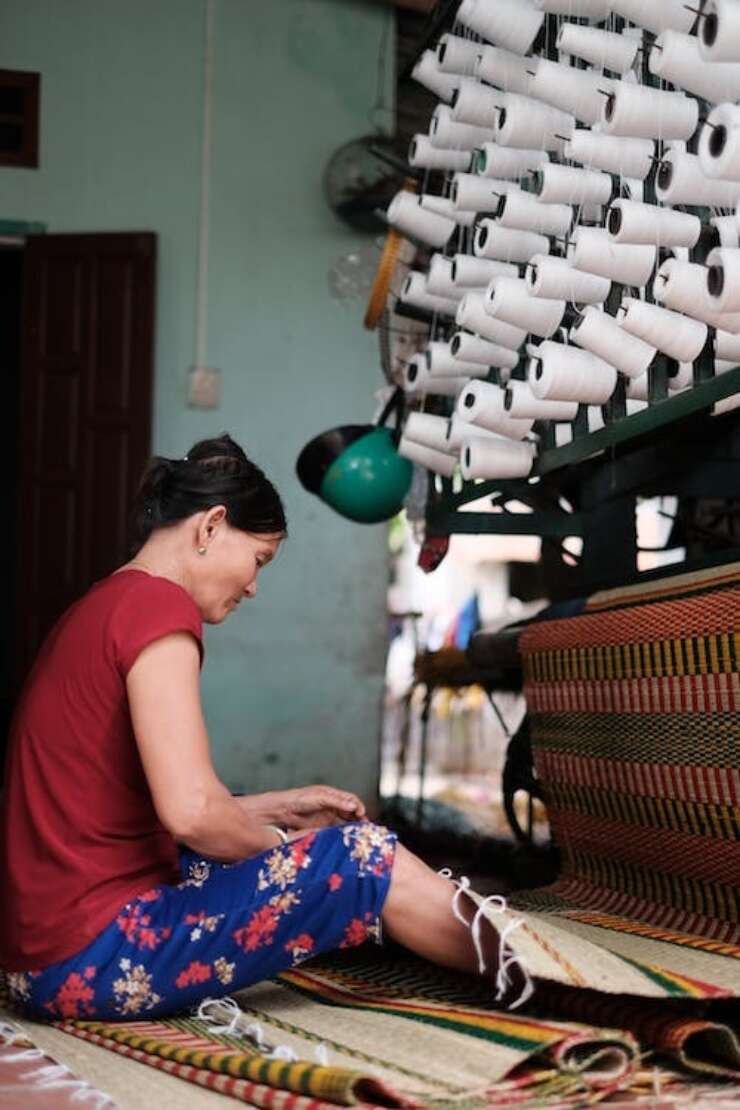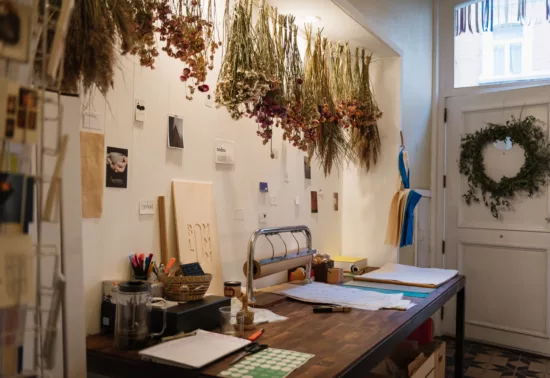In our globalized world, artisans and crafters have been increasingly isolated from the global markets fast evolution. The triple role of the artisan as a designer, producer and marketer has disappeared. Before the explosion of the tourist sector, the personal and direct relationship with the costumer allowed them be connected with the changing needs and tastes of the public. Nowadays, artisans are being pushed out of the cultural context.
Given this situation, the figure of the designers appears as an intermediary between producers and consumers. However, this relationship have been often fraught with exploitation. The westernized vision on clothing making have hidden the work of the artisans repeatedly in the luxury fashion industry. It has been a common practice among designers to travel to the global south, to countries like India or Namibia. Back home, they usually feel “inspired” to launch designs that recreate patterns that they got to know back in their travel. These practices lack respect for the hours of work, cultural techniques and process that the design is inherently attached to. There are multiple examples, in 2019 Nike was forced to cancel the launch of one of their classic shoes because the Guna community in Panama claimed that the design was part of their traditions and it was protected. Dior replicated the traditional jackets of a Romanian community without permission.
This ongoing and profitable cultural appropriation from the luxury fashion industry could be repaired by building a co-creative relationship between artisans and designers. The need of an ethical approach has been the beginning of different initiatives by social enterprises with the will of creating employment and defending crafters’ skills globally. Fashion supposes an universal language, it is the perfect platform to reappraise local economies, creating sustainable and ethical jobs and giving the value that artisan’s skills deserve.
There have been already created multiple guides to work ethically with artisans, but there is a common agreement on the key takeaways. Thus being the necessity to build an equal relationship crafter-designer, acknowledging the impact that these practices have on artisans communities and being able to evaluate the potential consequences of the final result. Designers should be able to step back during the artisan design process while introducing new techniques and designs. It is important that the designer understands the benefits of collaboration. It is an opportunity to offer authentic products, to support traditions that globalism is destroying, and to revitalize the labour market in impoverished regions.
As customers it is important to become increasingly more culturally sensitive, we should be able to recognise and point out when brands are just stealing from communities. It is also crucial our role as customers while buying crafts from these artisans. Even though it is common to think that those goods are expensive, we need to leave behind the parameters that the fast fashion industry so well implemented in us. There are many hours and work in a piece that deserves to be fairly paid.
Climate change and the path to sustainable practices seem to position artisan fashion as a fairer, kinder and logical way. It gives to culture the importance it deserves, it protects and celebrates the many artisan techniques that are disappearing. Artisan fashion is part of the many ways that you can implement slow fashion in your life. Everybody can participate in the ethical fashion movement, we should talk more about these issues with the people close to us, we should be able to call out fashion brands that culturally appropriate. We can find out local artisans and support them, we can become more conscious consumers.




